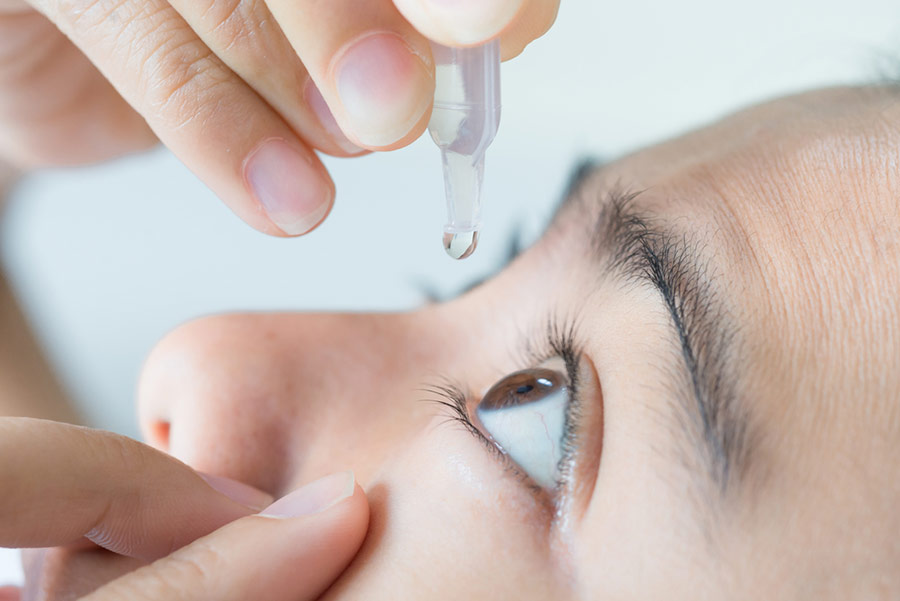Dry Eyes
Dry eyes are quite common and often affect individuals young and old, particularly those who regularly perform visually demanding tasks such as reading and using the computer for prolonged stretches of time.
Patients suffering from certain connective tissue diseases such as rheumatoid arthritis or Sjogrens’ syndrome are at higher risk of suffering from severe dry eyes. They can also affect patients after eye surgeries, such as cataract and some forms of refractive surgeries. Dry eyes tend to be more prevalent during winter in temperate countries and during haze.
Symptoms associated with dry eyes include fluctuating eyesight, foreign object sensations in the eyes, tearing, and cloudy and glary vision.
Treatment consists of lubricating eye drops, eye gel and oral supplements. More severe forms could benefit from insertion of punctal plugs, or specialty eye drops.

Contact Lens and Dry Eyes
Prolonged contact lens wear can also result in dry eyes. Patients with pre-existing dry eyes should be cautious when using contact lenses, as the risk of complications such as infections are higher.
People who use contact lenses for several years often get an allergic reaction to the contact lens. A common form of allergy is known as Giant Papillary Conjunctivitis (GPC). The person may experience discomfort, itching, mucous discharge or redness with wearing of the contact lens. This condition tends to get progressively worse with continued use of contact lens.
Contact lenses reduce the oxygen supply to the cornea. People who use contact lenses for long periods or who sleep with the lenses may damage the cornea, resulting in a breakdown of the surface layer and swelling of the cornea. This may result in pain, redness, tearing and blurring of vision. In some instances, much of the surface may be left with a large epithelial defect that exposes the eye to a significant risk of developing severe eye infections.

If you are experiencing dry eyes that affect your day-to-day functions, it is advisable to schedule an eye check to better understand your condition. Early intervention and treatment can help to relieve symptoms and improve quality of life.




